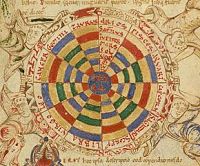33 - Last Judgments: Plato, Poetry and Myth
Plato criticized both the epic poetry of Homer and Hesiod, and the tragic and comic poets. Yet he invented myths of his own. So what was his attitude towards literature and myth? Peter tackles this question in a final episode on Plato.
Themes:
• J. Annas, “Plato’s Myths of Judgement”, Phronesis 27 (1982), 119-43.
• G.R. Boys-Stones and J.H. Haubold (eds), Plato and Hesiod (Oxford: Oxford University Press, 2010).
• D. O’Connor, “Rewriting the Poets in Plato’s Characters,” in The Cambridge Companion to the Republic, ed. G.R.F. Ferrari (Cambridge: Cambridge University Press, 2007), 55-89.
• C. Partenie (ed.), Plato: Selected Myths (Oxford: Oxford University Press, 2004).
• C. Partenie (ed.), Plato’s Myths (Cambridge: Cambridge University Press, 2009).
Philosopher's Zone podcast: Plato on Myth






Comments
Cause
And so we get to the end of Plato - but before we leave Peter can you go back a bit to the term you used discussing Forms that the Form of largeness 'caused' largeness in Hiawatha the boy named girl giraffe. As a transitive verb 'cause' suggests that the Form has generative power to effect the 'largeness' rather than that Hiawatha, being large, is by coincidence reflecting a 'Form-al' universal property.
In reply to Cause by Steadfast
Forms as causes
Yes, Plato definitely talks about Forms as causes, and so do figures in the later Platonist tradition (as detailed in the later episodes). The dialogue where he really makes this clear is the Phaedo, also the beginning of the Parmenides though there he is raising problems about whether Forms actually could be causes (among other problems). I talk about the issue a fair amount in teh Phaedo episode, I seem to remember. In any case you're right that Hiawatha is supposedly made to be large by the Form, and not just resembling the Form by virtue of being large (though that may also be true). This doesn't necessarily rule out the involvement of other causes though, the ones that Plato calls "clever" causes in the Phaedo.
Interpretation of Plato's myths still not convincing
The usual interpretation of Plato's myths is still not convincing. It begins with a clear lack of distinction between traditional myths and Plato's myths. It continues with the puzzling fact that Plato (resp. his Socrates) believes in some of his myths, but in some others rather not. And it ends with the myth of Atlantis, which is only called a myth by modern scholars, whereas Plato himself talks of it as a logos, clearly not a myth in his sense - although the story of Atlantis is somehow constructed like one of Plato's major myths. Hm. I especially have the strong feeling that the whole concept of Platonic myth is biased by the will to define the story of Atlantis to be a myth instead of a distorted historical tradition (it is literally not true, this is clear). If we omitted the story of Atlantis, the picture would become much more easy, and some exaggerated assumptions would be unnecessary. I am working on this. The problem is: The picture becomes fine only, if Atlantis is indeed no myth. Finding Atlantis ... :-)
In reply to Interpretation of Plato's myths still not convincing by Thorwald C. Franke
Atlantis
I was slightly disappointed that so little space was spent on probably the most famous Platonic myth (is it myth?) about Atlantis. Dare I say the word "gap"? Anyway, I found great discussion of it on BBC In Our Time as https://www.bbc.co.uk/programmes/m001c6t3. Highly recommended!
In reply to Atlantis by Matěj
Atlantis
Yes I just listened to that today as it happens! I enjoyed it, especially since I know all three guests personally.
Technology
So, Peter it seems pretty clear that "philosophy" starts in verbal modalities and evolved. Fragments were written before they became "fragments" but as there was no publishing as we know it in say the time of Thales or Pythagoras, was it likely that some copies of works circulated concurrently with the authuors? At some point this must have been the case. With Plato? Who was the first "published" philosopher as we would use the term? Did Plato's/Atistotle's students study written texts?
In reply to Technology by Richard Leader
Books
Yes indeed - the much-discussed transition from oral to written culture happens around the time of the Presocratics and actually one of the nicest biits of evidence about this is in Plato's Phaedo, where he has Socrates describe buying a book by Anaxagoras in his youth (and being disappointed). In the Parmenides we also hear how Zeno's work has just been read out to the group and then Socrates asks Zeno whether he has understood it properly. Even earlier it seems that Heraclitus also had a book, at least a compilation of his sayings; perhaps he was the first published philosopher (in Greek at least - Egypt and India beat the Greeks to it, I guess).
Philosophy and Myth
"In the same way the Law also makes a call to adopt certain beliefs, belief in which is necessary for the sake of political welfare. Such, for instance, is our belief that He, may He be exalted, is violently angry with those who disobey Him and that it is therefore necessary to fear Him and to dread Him and to take care not to disobey" (Maimonides, Guide, Part Three, Chapter 28).
Add new comment